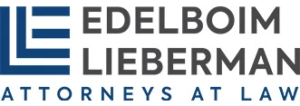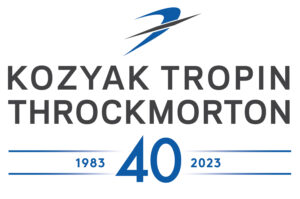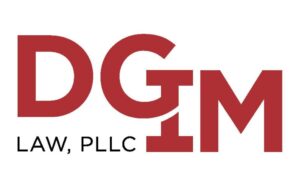|
Menotte v. Keough (In re National Financial Holdings, Inc.), 21-16989-MAM, Adv. No. 22-01243-MAM, 2023 WL 5988683 (Bankr. S.D. Fla. Sept. 14, 2023) (Mora, J.)
The newsletter begins with a recent case analyzing Stern core versus non-core issues. In Keough, the Chapter 7 Trustee initiated an adversary proceeding against a number of individuals and affiliated entities. The Trustee’s amended complaint included claims: for substantive consolidation, for breach of fiduciary duty, to avoid and recover fraudulent transfer under §§ 544, 548, 550 and applicable Florida law, unjust enrichment, and other injunctive and equitable relief. A subset of the defendants moved to withdraw the reference and for a determination as to the core versus non-core nature of certain of the counts asserted against them. In reviewing the core versus non-core status of the claims set forth in the amended complaint, the Court noted that bankruptcy courts in our District provide the initial assessment of “core” status.
The starting point for that determination is 28 U.S.C. § 157(b)(2), which sets forth a non-exhaustive list of “core” proceedings. This section, though, can only be the starting point because the statute’s list of “core” categories is “long” and its language is “broad” — after all, “[v]irtually every issue raised in an adversary proceeding impacts the administration of the bankruptcy estate on some level.” The Court then outlined several practical rules developed by courts (including the Supreme Court) to counter this statutory challenge:
- A proceeding is “core” if it involves a right created by federal bankruptcy law or would arise only in bankruptcy;
- A proceeding is non-core if it does not invoke a substantive right created by the federal bankruptcy law and is one that could exist outside of bankruptcy;
- Bankruptcy courts have the freedom to look beyond the window-dressing of a complaint and investigate a claim’s true substance because causes of action may be pled in multiple ways;
- Entitlement to a jury trial alone is generally insufficient for withdrawal of the reference at the early stages of an adversary proceeding;
- Under Stern and progeny, constitutional rights, being inviolable and overriding efficiency concerns, require District Courts to carefully determine whether to withdraw counts from an adversary complaint as a constitutional matter;
- Where the affected party is unequivocally not a creditor, Stern and progeny hold that a non-creditor’s assertion of a claim or defense without consent to final adjudication by a bankruptcy court will override the “core” status of a cause of action described in § 157(b) because constitutional concerns mandate trial in the district court;
- Where there remains a “gaping hole of uncertainty” even after looking to Stern and progeny, “most reasonable approach is to presume withdrawal of the reference to permit a jury trial after the conclusion of all pretrial matters.”
After outlining these rules (among others), the Court then concluded that the District Court’s removal of some but not all of the counts in the amended complaint would likely “be a waste of judicial resources” because the factual allegations supporting all counts are thoroughly intertwined.
Click the link below for the Court’s full analysis.
Link to Order
In re Wolfson, 23-12564-PDR, 2023 WL 6970147 (Bankr. S.D. Fla. Oct. 19, 2023) (Russin, J.)
Section 522(o) provides for a reduction in a debtor’s homestead exemption where it is shown that the debtor used non-exempt assets to obtain value in a homestead with the intent to frustrate creditors (i.e., “hinder, delay, or defraud” them). The Wolfson case demonstrates how this potentially potent creditor tool operates. In Wolfson, shortly before a state court trial that would feature the debtors as defendants, the debtors sold a cabin in North Carolina. They used a substantial chunk of the near $500,000 in proceeds to pay off their home mortgage and clear credit card debts. After a jury awarded the plaintiff in the state court action a significant judgment, the debtors then filed for Chapter 13 bankruptcy relief without disclosing these transactions. The plaintiff-creditor then moved to convert the Chapter 13 case for cause and objected to the debtors’ claimed homestead exemption under § 522(o). At trial before Judge Russin, the plaintiff-creditor proved that the debtors used proceeds from the cabin sale to pay their mortgage, intending to hinder, delay, or defraud. The debtors’ concealment of asset transfers disqualified them from Chapter 13. Consequently, the Court decided to reduce the debtors’ homestead interest by $267,478.91 and convert the case to Chapter 7 bankruptcy.
Click the link below for the Court’s full analysis.
Link to the Order
In re Garcia, 22-19725-RAM, 2023 WL 8229244 (Bankr. S.D. Fla. Nov. 27, 2023) (Mark, J.)
In Garcia, an above-median income Chapter 13 debtor owned two vehicles subject to secured claims. The debtor’s proposed Chapter 13 plan reduced the debt on one and lowered the interest rates for both, resulting in monthly payments to the lenders that are significantly less than originally agreed. The Chapter 13 trustee objected to the plan’s confirmation. The Court must determine whether an above-median income Chapter 13 debtor can deduct from their monthly income either (a) the average future payments based on the original contract, or (b) the higher of the IRS Local Standard or the payments under the reduced debt plan. The Court undertook a comprehensive and complex analysis of several BAPCPA provisions, case law from other jurisdictions, and the Supreme Court’s Lanning decision (which analysis the Court likened to “driving a car with four different-sized tires”). The Court ultimately sustained the Chapter 13 Trustee’s objection and found that a Chapter 13 debtor may deduct from his or her current monthly income the greater of his or her actual monthly plan car loan payment and the IRS local standard deduction.
Link to the Order
In re Cleary Packaging, LLC, 21-10765-MMH, 2023 WL 8703920 (Bankr. D. Md. Dec. 15, 2023) (Harner, J.)
At its core, the Cleary Packaging decision confronts a common clash of competing interests: how should a Chapter 11 debtor’s interest in reorganizing be balanced against the interest of unsecured creditors in maximizing value (and their recoveries)? The case involved a “relatively productive” business debtor seeking Chapter 11 relief, primarily due to a large state court judgment that led to bankruptcy. This judgment was tied to the debtor’s formation and operation by its current owner, who, through a proposed Chapter 11 plan of reorganization, intended to maintain control post-reorganization. That owner would also retain 100% ownership in the debtor despite an approximate 27% recovery by unsecured creditors. Thus, the central issue was whether the owner contributed sufficient “new value” to the reorganization to justify the owner’s retention of ownership.
“New value” was a relevant (and central) consideration because the debtor’s confirmation process involved a “cramdown” scenario that implicated the absolute priority rule. The Court could confirm the debtor’s plan if the plan “does not discriminate unfairly, and is fair and equitable, with respect to each class of claims and interests that is impaired under, and has not accepted, the plan.” 11 U.S.C. § 1129(b)(1). In discussing the “general contours” of new value, the Court looked to guidance from the Supreme Court and, ultimately, the Ninth Circuit to apply a five-factor test requiring that new value be: (i) new, (ii) substantial, (iii) in money or money’s worth, (iv) necessary for a successful reorganization, and (v) reasonably equivalent to the value of the stock being retained or received. Applying this test, the Court considered “sweat equity” and the extinguishment of the owner’s claims to be neither new nor substantial. While the Court did consider the $25,000 payment to be new value, the Court concluded that amount was not sufficient in comparison to the total claims and the recoveries expected by unsecured creditors. Confirmation of the debtor’s plan was therefore denied.
Link to the Order
|






























